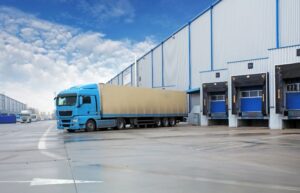The history of trucking is a fascinating journey that parallels the development of transportation, commerce, and industrialization. Trucks, as we know them today, have come a long way from their humble beginnings. Here is an overview of the history of trucking:

- Early Horse-Drawn Wagons: The roots of trucking can be traced back to ancient times when humans used horse-drawn wagons for transporting goods. These early wagons were primarily used for local, short-distance transport.
- Steam-Powered Trucks: The late 19th century saw the emergence of steam-powered trucks. These vehicles were a significant advancement in cargo transportation, but they were limited by their size and weight.
- Internal Combustion Engine: The true revolution in trucking began in the early 20th century with the development of the internal combustion engine. Gasoline and diesel engines made trucks more efficient and versatile. In 1912, the first modern diesel engine was created, which greatly improved the power and efficiency of trucks.
- The First Commercial Trucks: The first commercial trucks were mainly used for local deliveries and short-haul transportation. Their use became more widespread during and after World War I, when the demand for efficient transport grew.
- Development of the Interstate Highway System: In the United States, the 1950s marked a pivotal moment in trucking history with the construction of the Interstate Highway System. This network of high-speed, divided highways greatly improved the efficiency of long-distance transport.
- Regulation and Safety: As the trucking industry expanded, regulations and safety standards were put in place to ensure the safety of both drivers and the public. The Federal-Aid Highway Act of 1956, also known as the National Interstate and Defense Highways Act, helped fund the development of the interstate highway system and established federal oversight in the industry.
- Containerization: The mid-20th century brought about a significant change in the trucking industry with the widespread use of containerization. Standardized shipping containers allowed for easier intermodal transport, making it more efficient to move goods from ships to trucks, trains, and vice versa.
- Globalization and Long-Haul Trucking: With the growth of international trade and globalization, long-haul trucking became increasingly important. Trucking companies expanded their operations, and the industry became a significant player in the global supply chain.
- Technology Advances: In recent years, technology has revolutionized the trucking industry. GPS navigation, electronic logging devices (ELDs), telematics, and other innovations have improved safety, efficiency, and the tracking of shipments.
- Environmental Concerns and Sustainability: As environmental concerns have grown, there’s a push in the trucking industry to reduce emissions and adopt more sustainable practices. This has led to the development of electric and hydrogen fuel cell trucks, as well as efforts to improve fuel efficiency.
- E-commerce and Last-Mile Delivery: The rise of e-commerce has spurred a demand for efficient last-mile delivery services. Companies are exploring innovative ways to meet the growing needs of online shoppers, such as drone and autonomous vehicle deliveries.









Comments are closed